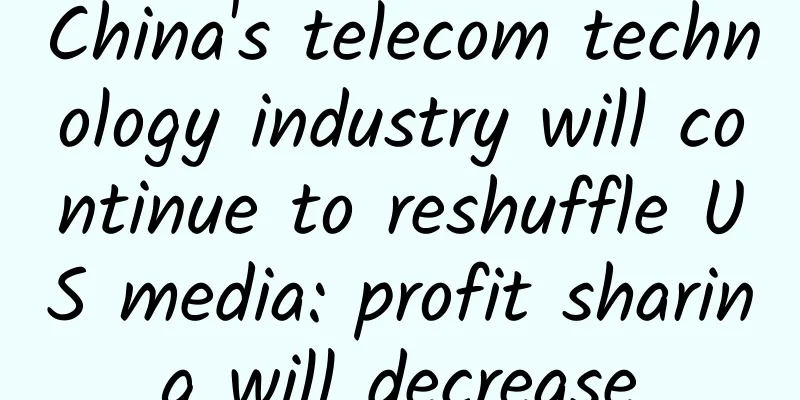China's telecom technology industry will continue to reshuffle US media: profit sharing will decrease

|
Reference News reported on January 2 that according to US media, a few months ago, many people in China's technology industry warned that "winter is coming" after a period of overheated growth. Now, some people are relieved, thinking that "this is a warm winter." According to a report on the website of the Wall Street Journal on December 23, 2015, in the face of the difficult Chinese economy, the technology bubble in the first half of 2015 has subsided. But companies of all sizes still see a lot of opportunities to connect hundreds of millions of Chinese with goods, services and each other through smartphones. Investors are still willing to support the most promising companies, but with more additional conditions. So what will 2016 hold? Perhaps a period of continued sobriety, with investment and growth patterns settling down and companies that can’t continue to be supported by a steady flow of cash from investors dying out. The report said that in any case, it is difficult to maintain the amazing scale of M&A transactions in 2015 in 2016. According to Dealogic, the total value of 1,420 M&A transactions since 2015 has reached 132.9 billion US dollars, almost three times that of 2014. However, many of these transactions are driven by the demand for integration in the consumer sector, where some companies are "burning money" to compete with competitors without caring about profits. The report said there will be more such mergers and acquisitions in 2016. This means that Chinese consumers will get fewer discounts when they enjoy taxi, food delivery and home delivery services. While some early-stage venture capitalists say they remain interested in promising ideas, some later-stage startups may find it harder to raise money if they can’t find a business model that doesn’t rely on investor money. User growth, which most startups have traditionally prioritized, is likely to take a backseat to revenue growth. Many businesses will have to shut down if they can’t find funding or a way to become profitable, and there will be many of them because so many were funded in 2014 and early 2015. Some investors say they prefer a less frenetic startup atmosphere, where valuations are more reasonable and they want to deal only with serious entrepreneurs. At the same time, the report said, China's Internet industry is likely to further divide in 2016. Alibaba, Tencent and Baidu, the three major Internet giants, will continue to acquire or invest in a large number of companies and technologies, picking winners and losers. As investors, the Big Three played a major role in several mergers and acquisitions in 2015. The companies they merged were once fierce competitors, including ride-hailing apps Didi and Kuaidi, online travel sites Ctrip and Qunar, group-buying sites Meituan and Dianping, and classifieds sites 58.com and Ganji. Together with JD.com, which counts Tencent as a strategic investor, these combined companies are seen as the second-tier giants of China's Internet industry. In the future, any company of considerable size that wants to survive and grow will feel the pressure to ally with one of the Big Three. The report said that although startups that provide software and services to enterprises grow slower than consumer-oriented companies, they are attracting more investment because enterprises are more willing to pay than consumers and it is easier to target them. This trend will continue in 2016, but some investors are worried that this field is becoming overheated in the weak economic environment. The hottest investment areas right now are companies that own the copyrights to entertainment content, which they can remake for different hardware and online platforms. As more Chinese are willing to pay for content, investors are investing heavily in the rights to remake novels, movies, TV scripts and online games. As the market becomes more saturated and competition intensifies, smartphone manufacturers may face a tougher time in 2016. According to the International Data Corporation (IDC), the global smartphone market growth rate is likely to drop to single-digit levels for the first time in 2015, and the slowdown is expected to continue until 2019. Telecom giant Huawei's smartphone sales and prices in 2015 were higher than the previous year, making it the winner in 2015, while former star Xiaomi is downplaying its 80 million mobile phone sales target in 2015 and focusing on user satisfaction. The head of a smaller smartphone maker told me a few months ago that the smartphone market has gone from a "blue ocean" full of opportunities a few years ago to a fiercely competitive red ocean in 2015. The situation in 2016 may be even worse. Even the Big Three have to worry about what will disrupt their dominance. With more than 650 million monthly active users, Tencent's messaging app WeChat has formed its own ecosystem. Users can call a car, shop, make payments and communicate via text, voice and video on WeChat. But Tencent CEO Ma Huateng said at a conference last week that he has been thinking about a question: "What will disrupt WeChat in the future?" He didn't give an answer, and no one knows the answer, the report said. This is one of the many questions we will ponder in 2016. As a winner of Toutiao's Qingyun Plan and Baijiahao's Bai+ Plan, the 2019 Baidu Digital Author of the Year, the Baijiahao's Most Popular Author in the Technology Field, the 2019 Sogou Technology and Culture Author, and the 2021 Baijiahao Quarterly Influential Creator, he has won many awards, including the 2013 Sohu Best Industry Media Person, the 2015 China New Media Entrepreneurship Competition Beijing Third Place, the 2015 Guangmang Experience Award, the 2015 China New Media Entrepreneurship Competition Finals Third Place, and the 2018 Baidu Dynamic Annual Powerful Celebrity. |
<<: Why can't Intel make mobile phone CPUs when it is outperformed by Huawei HiSilicon?
>>: Who will get a share of the 100 billion yuan terminal subsidies in 2016?
Recommend
From Pechoin to Momo, is soft advertising better or hard advertising?
From Pechoin to Momo, with the same budget and th...
World Mosquito Day丨Do mosquitoes also have to "take turns"? Let's take a look at the mosquito work schedule
Produced by: Science Popularization China Author:...
6 ways to attract new users!
Today's article would like to explain to you ...
Pulandian SEO Training: SEO Company | How do large websites perform SEO optimization?
SEO optimization is an ongoing process. Managing ...
Have you ever heard of the peony? Where does this beautiful name come from?
Produced by: Science Popularization China Author:...
Taobao weight loss: What is website over-optimization? How can SEO prevent over-optimization?
The basic meaning of seo is search engine optimiz...
100 information flow rankings: Video leads the ranking and has the highest traffic growth!
Today I will share with you an APP heat index rep...
How to promote with limited account budget?
How should a search promotion account with a smal...
How did people manage rivers in ancient times? Uncovering the secrets of the "River Chief System" and water civilization
The "River Chief System" is an institut...
To B products: How to build a complete product operation system?
For most operators , product operations are orien...
Cai Congo drums popular songs teaching pop explosion
Cai Congo's drum set pop song teaching pop ex...
Tips for reducing lead costs by advertising in the education industry!
In the homogeneous industry competition, how can ...
Bypass: The ticket grabbing software with the highest success rate in 2020
1. What is the account used for logging in? The a...
Finally figured it out! What should operations and products do in the early stages of a project?
Let’s take a look at the following picture We nee...
Will using a humidifier cause "humidifier pneumonia"? Remember these 5 points for correct use
gossip In the dry autumn and winter, many familie...









